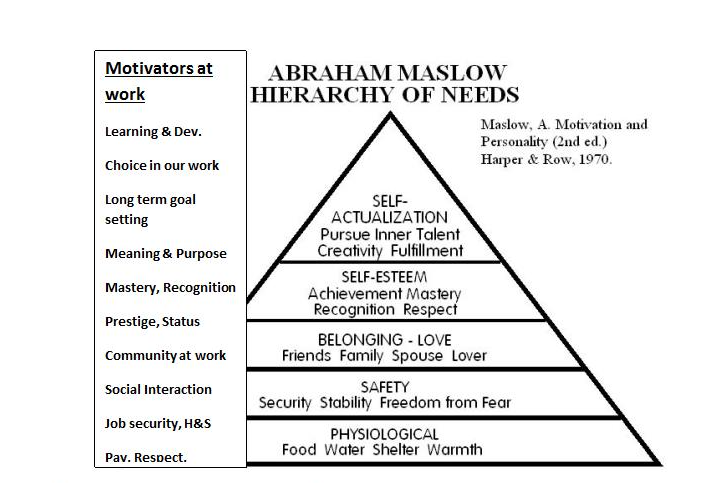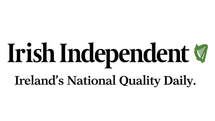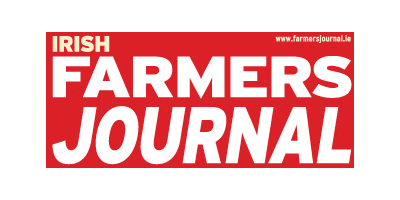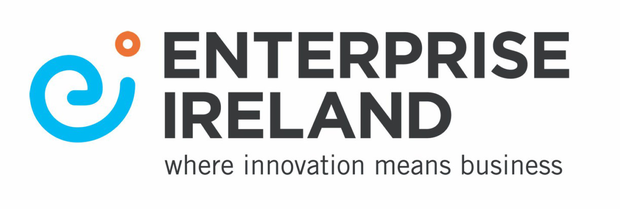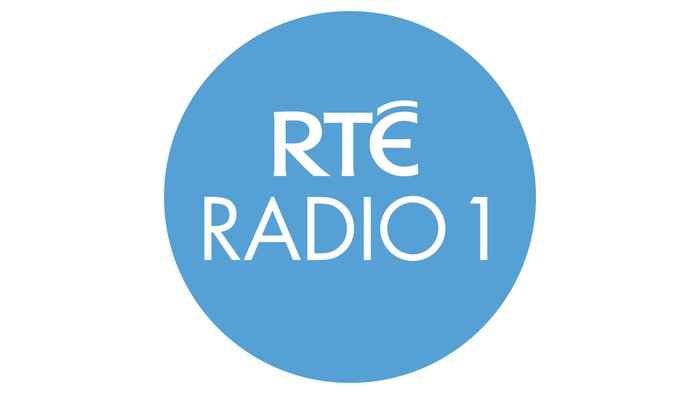|
The concept of the perfect Leader, CEO, farmer or football manager is widespread in today’s world. We expect them to be miracle workers. We are constantly analysing them and quick to lay the blame on their shoulders if they fail to turn around poorly performing teams and business’s overnight. The challenges facing leaders today is greater than it ever has been.
We live in a highly complex, technological, interconnected and competitive world. The demands on the individual business leader are enormous. They work long hours. Frustration and early burnout are unfortunately a common consequence of this. Coaching has been described as the antidote to this destructive cycle. Coaching provides the reflective space for people where they can find time to think, challenge their routines of working and what they are doing and why. It is no surprise that Coaching has become one of the fastest growing services in recent years. The benefits of Coaching, first recognized in sport in the 1970’s, was quickly adopted by leading business organisations. Today, it is estimated that over 90% of Business and Organisation Leaders have Executive Coaches. Seeing the benefits of Coaching first hand, many Leaders use Coaches to support their managers, drive leadership, talent and development programmes. In this feature, I will describe what coaching is, types of Coaching, the benefits of Coaching and where I see Coaching will benefit farmers. What is coaching? Coaching is essentially about enabling a person think better. “People tend to become what they think about themselves “ (William James, Psychologist Harvard University) The roots of coaching stretches back to the ancient philosophers. The ancient Greek philosopher Socrates quote is the very essence of coaching “I cannot teach anybody anything, I can only make them think, which is far superior to passing on my little wisdom.” European Mentoring and Coaching Council’s defines Coaching “Coaching is partnering with another in a thought provoking and creative process that inspires them to maximise their personal and professional potential” The Coaching process involves; 1. Building Rapport between Coach and person being coached is critical. 2. Active Listening – listening to understand is central to good coaching 3. Using Intuition 4. Asking the right Questions at the right time 5. Giving Feedback A typical coaching session lasts from 1.5 -2 hours. Types of Coaching 1. Executive Coaching refers to one to one Coaching of Leaders in Business, CEO’s, Managers and other professionals with the focus on helping you; · Manage yourself – Building Self Awareness and Emotional Intelligence, Manage your time. · Manage others – your management style, effectiveness, add Coaching skills to your core management skills · Run Effective Meetings · Set Goals 2. Business Coaching; Getting the big decisions right is critical to operating a successful Business. Coaching and Mentoring can be an invaluable support. 3. Career Coaching; For people who are at an important crossroads in their career; · Career Planning · Interview Coaching, CV and Job Application · Retirement - Transitioning to a new Chapter 4. Life Coaching is focussed on the broader aspects of life – work life balance, family, relationships, community, health and wellbeing, fulfilment 5. Sports Coaching where Coaching began and today it has branched in many areas such from skills coaching, performance coaching to the psychological side. Benefits of Coaching The Coaching will be designed to address issues, the person being coached wants to consider. Coaching is about dealing with current challenges and looking to the future. A good Coach will be mainly facilitative with the aim of enabling the Client to come up with their own outcomes. The Coaching process will support the development of self reflection. Something remarkable happens in a good Coaching session where the person begins to visualise their desired future. This vision can become so vivid that it compels them to orientate their actions towards it. They begin to see pathways around obstacles, keeping their eye on the prize rather than focussing on the difficulties that lie in the way. The benefits of Coaching to the individual are higher motivation, empowerment and self directed learning. Teams will develop a clearer vision, have higher morale and have a higher performance. The benefits to the overall organization include better communication, higher learning and development and staff that adapt quicker to change. There is a solid business case for Coaching – Research has shown the return on investment from coaching ranging from 500%- 800%. Benefits of Coaching in the Farm Business Farming today has become a complex business. However, farming is unique in that the farm owner is the manager and together with his family is also the business operator. The day to day demands of farm work often leaves little or no time for planning or pardon the pun, “seeing the wood from the trees”. Coaching is very different to advisory or extension work. With coaching the focus is on the person. It’s about enabling the farmer think better, develop their vision mission and set medium/longer term goals for their farm and family. It’s about building attitude and commitment to your goals. It’s about building resilience for the setbacks which every farmer is familiar with. I see Coaching is particularly beneficial for the big decisions in farming life - Strategic Planning, Managing Labour and Succession Planning. Strategic Planning Today’s successful farmers think and act strategically. Going through the process of drawing up a Strategic Plan is especially beneficial when you are at a particular crossroads in your business or your life - changing or expanding your business, when your work – life balance is out of kilter. The Coaching/Mentoring process will enable you do “joined up thinking” by analysing everything from where are you now, where do you want to get to and how you will get there. Strategic Planning will guide you in what would you like your business and quality of life to look like in say 5 years time. · SWOT Analysis of Your Business – Strengths, Weaknesses, Opportunities and Threats · How will your market and customers change into the future? · Staging your Plan · Setting SMART Goals · Achieving Results , Action Steps · Cash Flow and Budgeting Succession Planning Succession Planning is a very important issue for any business. It can be a particularly challenging and emotive issue for the farm family. Coaching and Mentoring can offer a powerful support in enabling the farm family make the right decision from; · Starting the Succession Conversation · Thinking out your Options? – Land Leasing, Partnership, Share Farming etc. · Financial Implications, · Communication within the family Recruiting and Managing People Expansion in dairying is resulting in an increasing number of farmers relying on full time hired labour. The recruitment and management of quality people is a new Challenge. What kind of person are you looking for? · Job Description ,Qualifications & Experience · Contract of Employment, Remuneration, Bonuses · Effective Management, Communication, Motivation, Teamwork · Longer term Career Development Achieving success is never easy. It’s important to surround yourself with the right people who will support and encourage you but will also point out the things you need to hear. Find a Coach or mentor who will suit you and stick with him/her. An effective Coach must be supportive and have a belief you can succeed. 2/15/2018 Agri Careers - Journey of DiscoveryStarting third level education is an important milestone for thousands of young people. Although the points requirement is marginally down from last year, the demand for Agricultural Science Degree programmes continues to be strong. Employment prospects for Agricultural Graduates are good. Surveys indicate that over 66% of Agricultural Graduates find employment within 12 months.
Choosing Agricultural Science is the first big step in your career pathway. A degree in Agricultural Science will open up a wide variety of career options. Agricultural Science graduates are known to be very innovative in building successful careers in many diverse areas. The lifting of the ban on recruitment in the public service has given a great boost to employment prospects. The following organisations provide the bulk of career opportunities for Agricultural Graduates; · Teagasc – Agricultural, Horticultural and Forestry Advisers, Education Officers , Research Officers · Department of Agriculture – Agricultural Inspectors · Bord Bia – Marketing Executives · Agricultural Consultants · Agricultural Journalists – Irish Farmers Journal, Irish Farmers Monthly, RTE, · Agribusiness - PLC’s like Kerry and Glanbia, Dairy Co-ops, ICOS, Meat Factories , SME’s – some of the roles include Technical Representatives / Sales / Animal Nutrition Specialists · Setting up your own business - Farming , Agribusiness What work would you love to do? Do any of the above roles interest you as a career? A career is a plan for your working life. It’s never too early to plan and start developing your career. Experience has shown that if you are enthusiastic about studying a particular course, one you hope will lead you to the career you desire, you are much more likely to make a success of it. “If one advance confidently in the direction of his dreams...... he will meet with a success unexpected in common hours “– Thoreau What kind of career do you want? Each person is unique. Every one of us has inbuilt motivators or drivers that govern the way we act and feel. “Your career is anchored by your career drivers. A career driver is an inner force which determines what you want and need from your working life “. (Brian McIvor, IMI Executive Coaching Course, 2013/14). Material Rewards – seeking possessions and a high standard of living Power and Influence – seeking to be in control of people and resources A Search for Meaning in life – seeking to do things which will make a difference to people Expertise –Seeking to be recognised for a high level of accomplishment in a specialised field. Creativity – seeking to innovate and be identified with original output. Affiliation – seeking nourishing relationships with others at work Autonomy – seeking to be independent and be able to make key decisions for oneself Security – seeking a solid and predictable future Status – seeking to be recognised, admired and respected by the community at large Take time to reflect on what your career drivers might be. Self awareness and knowledge of what makes you tick can accelerate you to the career you want. I find many young people are unaware of what they really want in a career. Role models or people you admire are known to play an important part in planting the seeds of a career. For example, many young people’s decision to study Agriculture has been influenced by an Agricultural Adviser calling to their farm. There are a number of useful psychometrics which can help give people an insight into what is important to them. Discovering your career mission will give you a sense of purpose and direction. Career Plan The greatest revolution of our generation is the discovery that human beings, by changing the inner attitude of their minds, can change the outer aspects of their lives – William James, eminent psychologist. A good positive attitude is essential if you are to develop a successful career. You must want to succeed. Setting goals and action plans are key elements of this process. I always advise people to write their plan. Writing your thoughts and dreams on paper is powerful. “Dreams provide a ladder, with intermediate rungs. In order to climb them, you must commit to a process” (Bob Rotella, Sports Performance Coach) The key questions in your career plan are. What particular work or role would really interest you? What particular field or organisation would you like to do this work in? Career pathways are rarely straight. They may involve a variety of different routes to your preferred role. An honours degree is essential for many roles. A post graduate qualification is always an advantage. For example, the Walsh Fellowship Masters Programme is a big advantage if you want to be become an Agricultural Adviser with Teagasc. A PhD is essential if you want to be a Researcher with the organisation. Transferable Skills – Start building your CV Your CV is the platform for every successful job Application. It’s all about you – your background, your Education, your Experience, your transferable skills. College years provide great opportunities to build your experience and transferable skills. People skills are important in most careers and it’s never too early to work on building your communication skills. Joining a club or a debating society is a great way to develop your public speaking skills and your confidence! Work Experience Work experience is an important element of your degree programme. Getting work experience in line with your career goals should be a central part of your career plan. It is important to be proactive in getting the right work experience. Don’t just confine yourself to doing just the mandatory work experience. Overseas experience is a great for self development and it always looks good on your CV. In addition to building up your transferable skills (the basis of your CV), work experience is a great way of building up a networks of important people. It’s a great opportunity to make an impact, by figuring out ways you can be really productive and get noticed in a positive way. Networking “Your net worth is equal to your network”. Building up a network of people who will provide information and support you in developing your career is really important. · The Careers Office, College Lecturer or Principal at your College · Make contact with Potential employers in your chosen career field. Match your particular skills with a company who values those skills. Is there an opportunity for work experience or internship? · People who work in your chosen field. This could be a role model. Agricultural Graduates will always look out and support a fellow graduate. They may be able to link you to important people. · A good career Coach is a worthwhile investment. Networking is important skill which will be important throughout your career. Building your confidence and being able to sell yourself should be a continuous process. Trade shows provide a great opportunity to meet influential people. 3/20/0012 New Year – New Career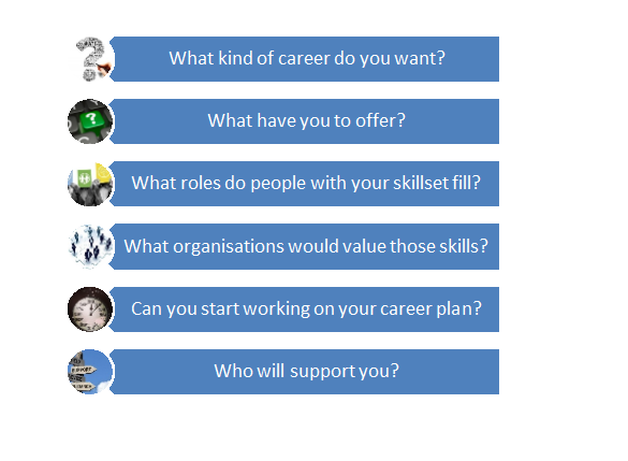 In my role as a career coach, I meet many people who feel they are “stuck in a rut” in relation to their career. They are in a job where they feel they are not appreciated. In a recent survey, 79% of people who quit their jobs cite lack of appreciation as the main reason. Many people feel trapped in a career that is going nowhere. They may have been “passed over” for promotion. They believe they are in the wrong job. What can they do to change this situation and mindset? First of all, it’s a good time. There are plenty of opportunities out there. The challenge is to find what you are looking for. I am a great believer in the saying “Luck happens where preparation meets opportunity”. It’s up to the individual to change things. They must take 100% responsibility for developing their career. Nobody else will do it for them. January is a great month for new beginnings and a time to give up all the excuses and start looking afresh at new possibilities and career options. Coaching is all about enabling people to think better, to break out of self-limiting beliefs and habits and to come up with their own solutions. Asking the right questions is central to the process. Questions are by far the best way to support a person in the process of learning and discovery. The following are examples of key career coaching questions. 1. What kind of Career do you want? What do you really love doing? I find many people do not know what they want in a career. There are a number of simple psychometric tests that will help in this regard. 2. What have you to offer? How can you add value to an organisation? What are your transferable skills? What do you excel at? I find most people are blissfully unaware of their depth of knowledge, the skills they possess and their personal qualities or attributes. It is critical to have confidence in what you can offer. A good CV is an obvious staring point. The good news is that other organisations may value what a person can offer far more than the organisation the person works for at present. 3. What roles do people with you skill sets fill? Be creative. Look around and see what other people with similar skills and qualifications are doing. What roles in particular would suit and energise you? 4. What organisations would value those skill sets? What kind of organisation will provide the working environment for you to flourish in? Abraham Maslow, an American psychologist, in a ground breaking study of successful people in the 1950’s, came up with a model called the Hierarchy of Needs. Table 1 shows the Maslow’s theory with the basic needs at the bottom of the pyramid. The model suggests our most basic need is for food and water. We care for little else until this need is met. Then we begin to concern ourselves with shelter, clothing and safety. As we climb up the pyramid – we begin to focus on our social needs, we begin to look for recognition. At the top of the pyramid is self-actualisation where we our focus is on setting and achieving goals, having choice in our work and having purpose and meaning in our lives. This model is still relevant in the world of work and in the box on the left hand side of the pyramid; I have attempted to apply Maslow’s theory to the important motivators at work today. 5. Can you start working on your Career Plan?
Write it down!! The power of capturing our best thinking on paper should not be underestimated. We all have good ideas from time to time but most are in our heads and become dislodged easily with the daily challenge of life. 6. Who will support you? When a person has finished writing down his/her vision, sharing the vision with a friend who will be positive and supportive is powerful - the plan will then appear more realistic and attainable. A good career coach is a valuable partner on the journey, offering guidance, support and encouragement. |
© Brendan Heneghan Coaching
Address7 The Maples,
Dr. Mannix Rd. Salthill, Galway, Ireland, H91 A40T |
Phone(087) 2518029
|
|

